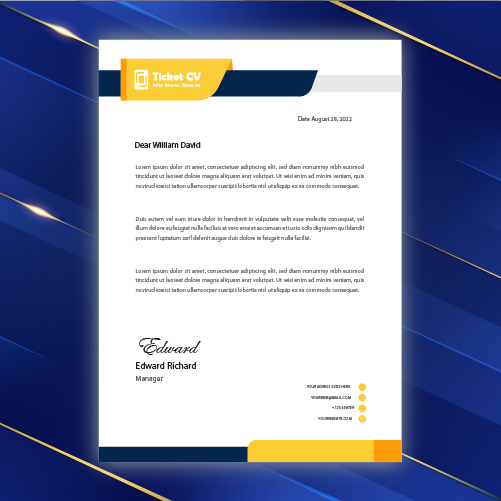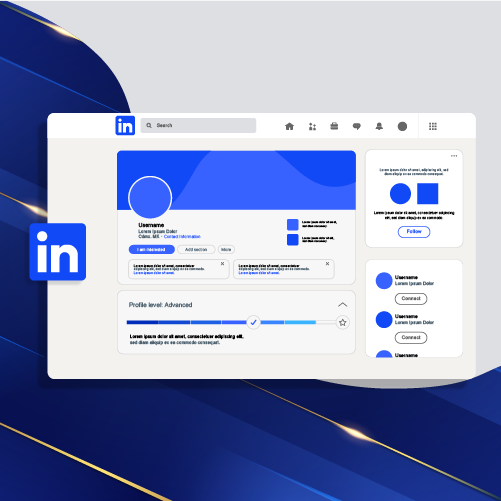Do employers check your credit score before hiring? This question often sparks concern among job seekers. Understanding the impact of credit scores on employment opportunities and background checks is crucial in today’s competitive job market. We’ll explore the legality, reasoning behind such checks, and how it can affect your job prospects. Practical tips on managing and improving your credit score to navigate potential employer scrutiny during job search will be discussed.
Employers evaluating job applicants based on their credit history has raised debates regarding privacy rights and fairness in hiring practices. By examining this topic comprehensively, individuals can gain insights into their rights as well as proactive measures to address any concerns about their credit standing affecting career opportunities.
Contents
ToggleUnderstanding the Role of Credit Scores in Employment
Importance for Employers
Employers often use credit scores to evaluate a candidate’s financial responsibility. For positions that involve handling money or sensitive financial information, a good credit score and capital may indicate trustworthiness and reliability. It can also reflect an individual’s ability to manage their finances responsibly, which is crucial for certain job roles.
In some cases, employers view credit scores as part of the background check process. They may consider it alongside other factors such as criminal history and employment verification. While not all employers utilize this practice, those who do believe that it provides valuable insights into a candidate’s character and integrity.

For example, if someone is applying for a managerial role in finance or accounting, having a strong credit score might be seen as evidence of responsible financial behavior and decision-making skills.
Impact on Job Seekers
Understanding how credit scores impact employment opportunities is essential for job seekers. A lower credit score could potentially hinder one’s chances of securing certain jobs, especially those related to finance or positions with fiduciary responsibilities.
Job seekers should be aware that their credit history might influence their employability in specific industries or roles. Taking proactive steps to improve one’s credit health could enhance the prospects of landing desired positions.
It’s important for individuals seeking employment to stay informed about how their score affects potential job opportunities and take measures to maintain or improve it when necessary.
Reasons Employers May Conduct Credit Checks
Evaluating Trustworthiness and Financial Stability
Employers may conduct credit checks to assess an individual’s reliability and financial soundness. By reviewing an applicant’s credit history, employers aim to gauge their ability to manage finances responsibly. For instance, a candidate with a history of late payments or high levels of debt might be perceived as less dependable.
Furthermore, a good credit score can indicate that the individual is more likely to handle financial responsibilities in the workplace effectively. This could be particularly relevant for roles involving access to sensitive financial information or company funds.
Industry-Specific Regulations
In certain sectors such as finance or government, there are specific regulations mandating credit checks for particular positions. For example, individuals applying for jobs in banking institutions may undergo thorough credit assessments due to the nature of their work involving significant monetary transactions and fiduciary duties.
Moreover, government agencies may require credit screenings for positions that involve security clearances or access to classified information. These organizations prioritize candidates who exhibit strong financial integrity and responsible money management practices.
The reasons behind employer credit checks are multifaceted and extend beyond simply assessing an individual’s ability to repay debts on time. Job seekers need to recognize these motives so they can proactively address any potential concerns during the application process.
What Information Employers See in a Credit Report
Payment History
Employers have access to an individual’s credit history through credit reports. This includes details about their payment history, such as whether they have been making payments on time for loans and credit cards. For instance, if an applicant has consistently made late payments or defaulted on loans, it may raise concerns for the employer about their reliability and financial responsibility.
Furthermore, employers can glean insights into how individuals manage their financial obligations based on their payment history. If an applicant has a pattern of missed or late payments, it might indicate potential issues with meeting deadlines and commitments in the workplace.
Outstanding Debts and Public Records
Another crucial aspect that employers can review in a credit report is an individual’s outstanding debts. This provides employers with information about the amount of debt the applicant currently carries. Excessive debt could be perceived as a risk factor by employers when considering candidates for certain positions, especially those involving financial responsibilities.
public records like bankruptcies or liens are visible to potential employers when they conduct credit checks. These records offer insight into an individual’s financial challenges and any legal actions related to debt management or repayment.
Understanding what information is available to potential employers within a credit report underscores the significance of maintaining good credit habits for job seekers. A positive payment history and manageable debts can enhance one’s appeal to prospective employers while demonstrating responsible financial behavior.
Legal Rights and Limitations of Employer Credit Checks
Fair Credit Reporting Act (FCRA)
The Fair Credit Reporting Act (FCRA) grants job applicants certain rights. Under the FCRA, employers must obtain written consent from job seekers before conducting a credit check. If an employer decides not to hire a candidate based on information found in their credit report, they are required by law to provide the applicant with a copy of the report and a summary of their rights under the FCRA.
Job seekers have the right to dispute any inaccuracies in their credit report directly with the consumer reporting agency. This process allows individuals to ensure that potential employers are making hiring decisions based on accurate information.

In some cases, job applicants may also have recourse against employers who violate FCRA regulations regarding credit checks through legal action for damages resulting from non-compliance.
State Restrictions
Certain states have put restrictions in place regarding how employers can utilize credit information when making hiring decisions. For example, California prohibits most employers from using consumer credit reports for employment purposes unless the position falls within specific exemptions such as managerial roles or positions with access to sensitive financial information.
Understanding these state-specific limitations is crucial for both job seekers and employers operating across different states. It ensures compliance with local laws and protects individuals from potential discrimination based on their financial history.
It’s important for job seekers to be aware of these restrictions so they can advocate for themselves during the hiring process if they believe an employer is violating state laws related to obtaining or using credit information.
Preparing for a Potential Employer’s Credit Check
Reviewing Your Credit Report
When preparing for a potential employer credit check, it’s essential for job seekers to review their own credit reports. By doing so, they can identify any errors or areas that may raise concerns for prospective employers. Reviewing the report allows individuals to ensure its accuracy and address any issues beforehand.
For example, if a job applicant notices an error in their payment history on the credit report, they can take steps to rectify it before applying for a new job. This proactive approach demonstrates financial responsibility and attention to detail, which are qualities valued by employers.
It is crucial to note that under federal law in the United States, individuals have the right to obtain a free copy of their credit report from each of the three major credit bureaus once every 12 months.
Improving Credit Health
Taking proactive steps to improve one’s credit health can mitigate potential issues during an employer’s credit check. Job candidates should focus on paying off outstanding debts and ensuring that all payments are made on time.
Impact of Credit Checks on Job Applications
Financial Responsibilities
Employers often check potential employees’ credit scores, especially for roles involving financial responsibilities. For instance, positions in accounting, finance, or handling company funds may prompt employers to scrutinize credit histories.
A poor credit history might raise concerns about an individual’s financial management skills. If a candidate has a record of missed payments, high debt levels, or bankruptcy, employers could view them as less reliable when handling financial matters.
In contrast, job seekers with solid credit histories can stand out in the hiring process for such roles. A strong credit score reflects responsible financial behavior and may indicate reliability and trustworthiness to employers.
Competitive Advantage
Understanding how credit checks affect job applications is crucial for individuals seeking employment in fields that prioritize financial integrity. By recognizing the significance of their credit history, job seekers can proactively address any issues before they become barriers to securing employment opportunities.
For example:
- John is applying for an accounting position at a reputable firm. His impeccable credit score gives him an edge over other candidates with less favorable credit histories.
- Sarah is pursuing a career in banking. Her excellent credit report enhances her credibility as someone who manages finances prudently.
Recognizing the impact of credit checks on job applications empowers individuals to take steps towards improving their financial standing and positioning themselves favorably during the hiring process.
Strategies for Explaining Poor Credit to Employers
Demonstrating Accountability and Efforts to Improve
Job applicants with poor credit can take proactive steps to address this concern when applying for a new position. One effective strategy is to demonstrate their accountability and efforts to improve their financial situation. For instance, they can highlight any positive changes in their credit report, such as paying off debts or successfully managing existing lines of credit.
By showcasing these improvements on their resume or CV, applicants can convey a sense of responsibility and reliability despite past financial challenges. This approach allows them to present themselves as individuals who have taken concrete steps towards rectifying previous issues.
Providing Context for Negative Items on Credit Report
When confronted with negative items on their credit report, job seekers should aim to provide context that helps employers understand the circumstances behind these issues. For example, if an applicant’s poor credit resulted from a period of unemployment or unexpected medical expenses, they should be prepared to explain these extenuating circumstances.
By offering this contextual information, candidates can paint a clearer picture of the factors that contributed to their credit history. This transparency demonstrates honesty and openness while allowing employers to consider the broader context surrounding the individual’s financial standing.
Enhancing Chances of Success through Effective Strategies
Developing effective strategies for explaining poor credit is crucial in enhancing job seekers’ chances of success during the application process. By proactively addressing potential concerns about their credit score, applicants can instill confidence in employers regarding their ability to manage responsibilities efficiently.
Moreover, by demonstrating growth and improvement over time, candidates exhibit traits such as resilience and determination—qualities that are highly valued in professional settings. These strategies not only mitigate concerns related to poor credit but also showcase an individual’s capacity for personal development and overcoming obstacles.
Approaching a Credit Check with a Thin Credit File
Providing Alternative Documentation
Job seekers with limited credit history can provide alternative documentation to supplement their thin credit file. Proof of consistent bill payments or rental history can serve as valuable supplements. By showcasing responsible financial behaviors, individuals can compensate for the limitations of a thin credit file during an employer’s credit check.
When faced with a thin credit file, emphasizing positive financial behaviors becomes crucial. For instance, demonstrating regular and timely payments for utilities, rent, or other recurring expenses showcases fiscal responsibility despite the lack of substantial credit history. This proactive approach helps offset the challenges posed by a limited credit history during employment-related soft inquiries.
Creativity and Proactive Communication
Approaching a credit check with a thin credit file necessitates creativity and proactive communication from job seekers. /// They should take initiative in providing additional context regarding their financial situation to potential employers. Communicating any mitigating circumstances that led to their limited credit history is essential in portraying transparency and accountability.

In some cases, individuals might consider obtaining letters of recommendation from landlords or utility companies attesting to their consistent payment track record. Such documents could significantly enhance an otherwise sparse credit report, offering employers tangible evidence of reliable financial conduct despite the absence of extensive traditional credit accounts.
Navigating the Timing of Pre-Employment Credit Checks
Understanding the Process
Job seekers often wonder, “Do employers check your credit score?” It’s crucial to understand that employment decisions involving credit checks can occur at various stages of the hiring process. Employers may conduct pre-employment credit checks before making a final hiring decision. This means that candidates should be aware that their financial history could be assessed early on.
Being prepared for pre-employment credit checks is essential because it allows candidates to address any potential concerns in advance. By staying informed about when this aspect of the background check may occur, job seekers can take proactive steps to mitigate any issues related to their credit history.
Staying Informed and Prepared
Navigating the timing of pre-employment credit checks involves being knowledgeable about when this assessment might take place. For instance, some states have regulations regarding how and when employers can use credit information in employment decisions. Certain positions or industries might have specific requirements concerning pre-employment credit checks.
It’s important for job seekers to stay updated on these regulations and industry-specific practices so they can anticipate if and when a potential employer might request a credit check. Having this awareness empowers candidates to manage their financial affairs proactively and seek guidance if needed.
Summary
Understanding the role of credit scores in employment is crucial for job seekers. Employers may conduct credit checks for various reasons, and it’s essential to be aware of what information they can access and the legal rights surrounding this practice. Job applicants should prepare for potential credit checks and understand the impact these checks can have on their job applications. Strategies for explaining poor credit and navigating credit checks with a thin credit file are valuable insights for individuals entering the job market.
Job seekers should stay informed about the implications of credit checks in the employment process. It’s important to be proactive in managing one’s credit and to seek guidance on addressing any issues that may arise during an employer’s credit check. By staying knowledgeable and prepared, individuals can navigate pre-employment credit checks with confidence, potentially mitigating any negative impact on their job prospects.
Frequently Asked Questions
Do Employers Check Your Credit Score before hiring?
Employers may conduct credit checks, but it’s not universal. Certain industries or positions related to finance or security may be more likely to require a credit check.
annualcreditreport.com; AnnualCreditReport.com; www.AnnualCreditReport.com
What are the reasons employers conduct credit checks?
Employers often use credit checks as part of the hiring process to assess an individual’s financial responsibility and trustworthiness, especially for roles that involve handling money or sensitive information.
Can a poor credit score affect job prospects?
Yes, a poor credit score can potentially impact job prospects, particularly in roles where financial responsibility is crucial. However, many employers consider multiple factors when making hiring decisions.
How should one explain a poor credit history to potential employers?
One should be honest and transparent about any past financial challenges. It’s important to provide context and demonstrate steps taken towards improving the situation while emphasizing professional qualifications, character references, resume, and CV.
Are there legal limitations on employer credit checks?
Yes, there are legal restrictions on how and when an employer can use an individual’s credit history during the hiring process. The Fair Credit Reporting Act (FCRA) outlines specific guidelines for conducting employment-related background checks.











